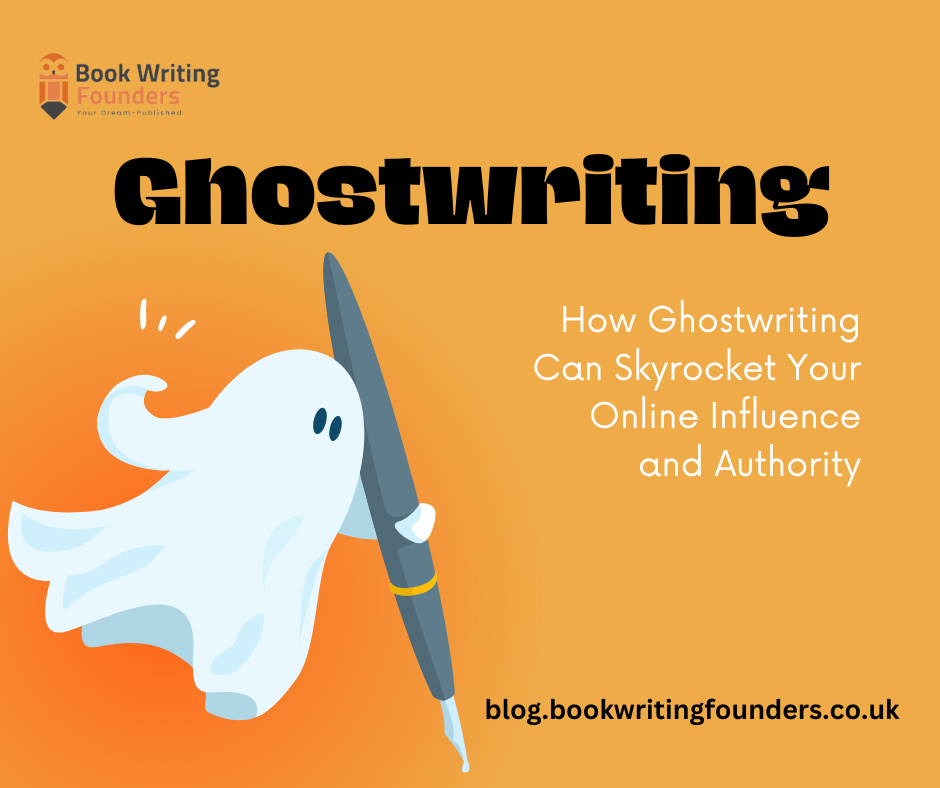
Writer
Freelance writing is a popular way to make money on the side or as a full-time job. Not only is it a great way to make money, but it’s also a good chance to learn about interesting things and gain new professional skills.
It doesn’t matter whether you just got out of college or are searching for a new direction in your professional life; freelance writing is for you.
To get started as a Freelance Writer UK, you need more than just a desire to do it. Learn more about what does a freelance writer do and the skills required. You’ll need more than just creativity, grit, and the ability to put thoughts on paper to succeed here.
10 Tips to Become a UK Freelance Writer:
Investigating and writing about diverse topics and being your own boss in this field is interesting. Working remotely gives you much freedom to go wherever life takes you. We’ve got you covered if you’re wondering how to become a freelance writer. Read on to learn what contract writing is and how you can start doing it right away.
Today, it’s much easier to start writing as a freelancer than ever. Here’s how to become an independent writer, whether you’re starting later in life or just want to change careers:
Figure Out What You Want to Write About:
To become a Freelance Writer UK, you must first decide what kind of writing you want to do, whether that’s copywriting, content writing, or technical writing. It could be related to what you study, what you did for a living in the past, or your hobby. Copywriters, content writers, journalists, and bloggers are the most popular freelance writers.
Create a Portfolio:
Even without published works, having a professional portfolio is vital. Learn how to become a ghostwriter to expand your portfolio’s diversity with links to your website and social media accounts. This is one of the most important tools for a professional writer. Even though you don’t have any new clients, you can show off your skills by making demos of different materials. Make sure to add your new work to your resume as soon as possible after you post it. But you should always get the client’s approval first, especially if your content isn’t going live immediately.
Build a Website:
Setting up your website is crucial, much like learning how to market your book on Amazon can show off your marketing skills. It doesn’t have to be fancy. Make sure it has an “about,” “contact,” “testimonials,” and “blog” page. Several sites let you make a website for free, but you should get your domain name and email address to look more official.
Know How to Make A Pitch:
Copywriting is a tough business, and it’s not unusual for a possible client to ask you to pitch your ideas to them. Your pitch could be interesting and to the point, showing off your ideas professionally.
Check to see if the newspaper or website you’re pitching to has its own rules, which may be important for making a good first impression. Here are some things you should talk about in your pitch:
a catchy title
the question your piece is trying to answer
a sense of what you hope to find, and a list of possible sources.
Enroll in Online Course:
Acquiring a writing diploma, like understanding what is reflective writing, ensures you have essential skills. It could be an introduction to marketing, a guide to SEO, or a news course at your local university.
Taking courses regularly keeps you up to date on best practices, which can be very helpful for independent writers who work online because algorithms and keyword needs change so quickly. There are paid classes, but there are also a lot of free tools that all independent writers can use to learn and improve their skills.
Keep Working that Day Job:
Don’t quit your day job. If you’re just starting as a writer, do it part-time before starting your own small business. As a great Freelance Writer UK, getting your first client and making good money could take a while. Keep your day job if you have one while you start writing independently. Once you have a steady stream of independent writing jobs and clients, you can make working your full-time job.
Become familiar with SEO Techniques:
Become familiar with SEO techniques; for more insights, see what does a marketing coordinator do. More businesses need information that will bring people to them. They’ll need content marketers who know the basics of SEO and how to help their website rank high in search results. As an independent writer, you should know how search engine optimization works and where to carefully place keywords to drive web traffic to the company’s site.
Get Better at Managing Your Time:
Different amounts of time will be needed for each writing task. One client might give you a month to write a short piece, while another might give you three days to write a 2,000-word story. Learn how to make a daily plan for your time, setting aside several hours to work on your projects so you can meet your goals.
Start to Write:
Some of the best writers begin with little experience, similar to the journey detailed in how to become an author in 6 steps, So if you want to get into independent writing but are worried you don’t have the skills yet, start practicing. When you write more, you feel better about yourself.
Before you pitch to clients, try to post on your blog once or twice a week. If you know what you want to write about, it’s not hard to do. You can also write a bunch of posts at once, which lets you save time and plan.
Accept the Feedback and Learn:
Your clients will let you know what they think about your work. Sometimes you’ll turn in a great piece, and sometimes you’ll have to make many changes. Don’t let bad comments hurt you.
When you write for a client, you must use the same style and tone as their brand and give them the information they want. As an independent writer, you need to have a thick skin. Successful writers don’t take criticism personally, make the changes asked of them, and learn from the experience.
Pros of Freelancing:
Schedule freedom: As professional book writers, you can set your hours and work when it works best for you.
Take charge of your projects: You can choose the projects you want to work on, suggest ideas you’re interested in, and turn down work you don’t want to do.
Flexible rates: You can set your prices and change them whenever possible.
Learning and growing with freedom: If you don’t have to write for a certain magazine or business, you can follow your interests and hobbies wherever they lead you and change directions.
No limit: As a worker, it’s up to you how you move forward and grow. You can do a few tasks every month just for fun or turn it into a full-time job if you want.
Flexibility in how and where you work: When you write for yourself, you don’t have to be in one place or follow certain rules. You can work in any way and place that works best for you.
Use of Minimal Tools: You just need a computer and an internet connection to start.
No extra qualification required: To become an independent writer, you usually don’t need a degree, a special qualification, or even years of experience. You just need to be able to work hard and write well.
Cons of Freelancing:
Getting a job is hard: Before you’re more well-known, clients won’t just come out of nowhere. As an independent writer, it’s up to you to look for writing jobs and projects.
Lack of structure: If you don’t get paid by the hour and have a boss, you must keep track of your time and goals.
Inconsistent income: How much money you make depends on the quality and number of tasks you turn in, not how many hours you work. So, some months will have less money than others.
Slow growth: Building a resume and getting steady, well-paying gigs takes time and patience. Depending on their skill levels, areas of knowledge, and niches, new independent writers could work for months or even years without regular clients or tasks.
Tough comments: As a Freelance Writer UK, you must learn to make changes and take feedback. Some clients don’t know what they want until they see it, while others give thorough (sometimes harsh) comments.
Rejection: It’s normal to be turned down for independent writing jobs and have writers and clients write your work for you. As an independent writer, you may get turned down more often than you get accepted, especially when just starting.
Several roles: Freelance writers require a wide range of abilities beyond just the ability to write. You must also know how to research, sell, communicate, network, edit, negotiate, and do routine work.
Types of Freelance Writers:
When someone is new to independent writing, experienced writers may tell them to choose a topic. Even though it’s important to know what you want to write, you should first figure out the best type of writing that fits your personality and skills. If you like more than one style, there’s no harm in trying out a few different ones.
1-Content Writers:
Content writers make writing that entertains or educates people. Content should also be interesting and help a company build its image and power while making viewers trust it.
If the material is for a website or magazine selling a product or service, it must be helpful. The goal of the material is to get people to move through the sales process without being too pushy. Unless this is the goal, the material needs to be fun.
Format and amount of content writing can vary greatly and depend greatly on what your client wants to achieve. Freelance Writer UK with experience knows about search engine optimization (SEO), target groups, and what the user wants. But many of these skills can be learned over time. Blogs, stories, and posts on social media are all common types of content writing.
2-Copywriters:
Copywriters create content aimed at selling, much like the strategies employed in aesthetic marketing ideas. In an email, product review, product description, white paper, case study, or site, the main goal of marketing is to get the reader to do something, like buy a product or make an appointment. Copywriters must enjoy doing their study and telling stories about a company or its items if they want to get good results.
3-Creative Writers:
Creative writing has a wide range of uses, and every kind of creative writing needs different skills and abilities. A screenplay for a television network, a poem for a literary journal, or a short story for an online blog are all examples of creative writing.
4-Ghostwriters:
Ghostwriters are writers who work on other people’s projects. This means that your name won’t be printed with the result. Freelance Writer UK who want to tell a story but don’t have good writing skills often hire ghostwriters. But clients who don’t have time to write their content often ask writers to write blogs in the same style or tone as their website.
5-Technical Writers:
Technical writing is a type of writing that explains how a device, tool, or type of software works or how it works. Most technical writing is in the form of user instructions and program guides, but technical writing is also sometimes needed for white papers.
To be a good technical writer, you need to know a lot about how a certain product or system works, be able to think clearly, and write both in code and plain English.
How Much Does a Free-Lance Writer Make On Average?
A Freelance Writer UK makes an average of £15.39 to £19.92. But that doesn’t mean you can’t charge more for what you do. Several things can affect how much you get paid for a job, such as your level of experience and skill, the amount of work involved, the number of words needed, and the amount of time you have to finish it.
Main Aspects/Attributes and Elaborate Information
| Aspect | Details | Tips/Advice |
|---|---|---|
| Getting Started | Decide on writing type (copywriting, content, technical, etc.) | Figure out your interests and strengths |
| Building a Portfolio | Create a diverse portfolio with different materials | Use ghostwriting, add new work promptly, get client approvals |
| Setting Up Online Presence | Build a website with essential pages (about, contact, blog, etc.) | Keep it simple but professional; get a domain and email |
| Pitching Ideas | Learn how to make pitches to potential clients | Include a catchy title, key question, and a list of sources |
| Skill Enhancement | Enroll in writing and SEO courses | Stay updated with best practices, use both free and paid resources |
| Financial Stability | Keep a day job initially | Transition to full-time writing only after securing steady clients and income |
| Writing Types | Explore different writing types (content, copywriting, creative, etc.) | Match your style with the type that suits you best |
Conclusion:
Freelance writing is a great way to make money and do important work, but it takes hard work and patience to get started. Study the business, find an area, and make a great resume to set yourself up for success. Before you know it, you’ll be a pro at freelancing.





